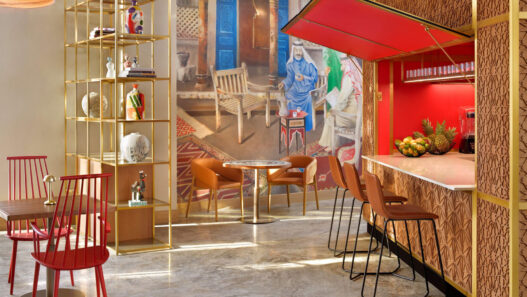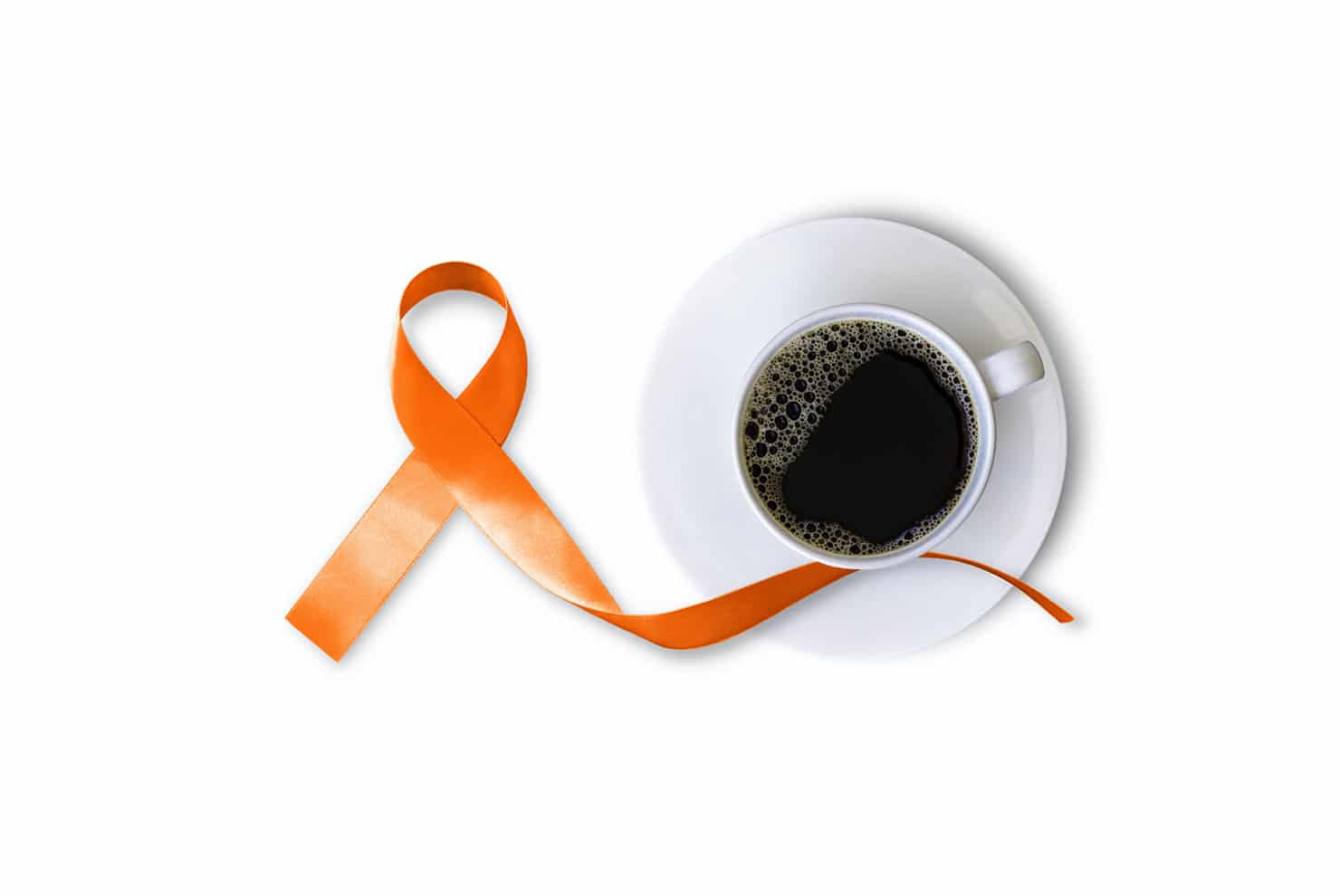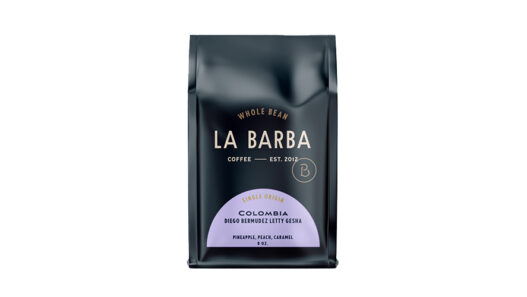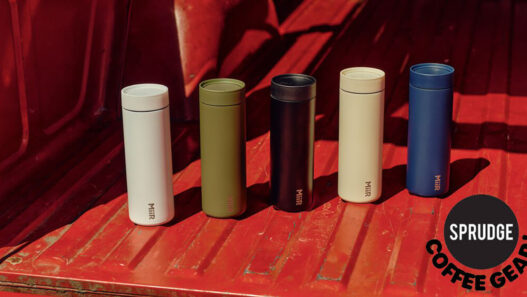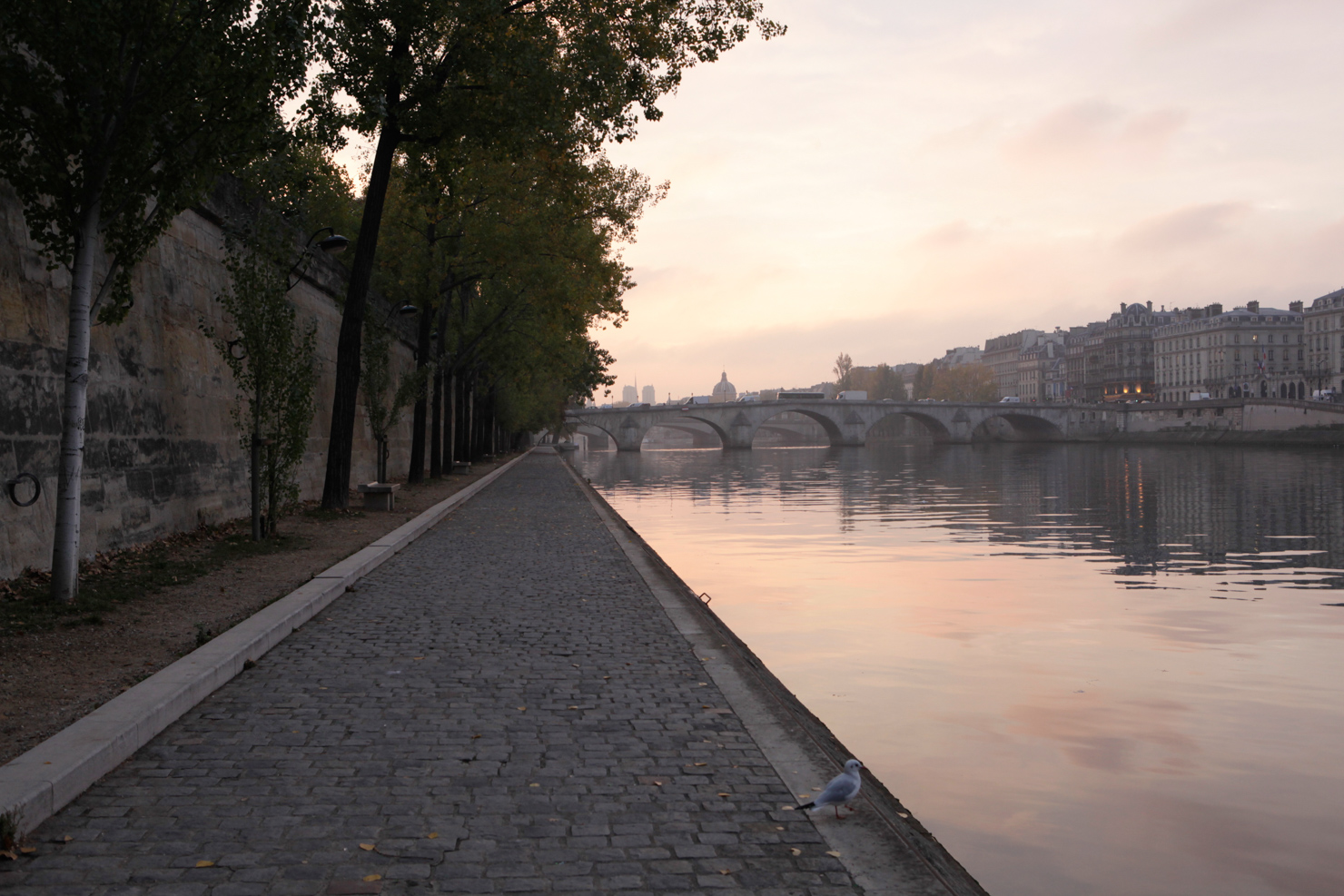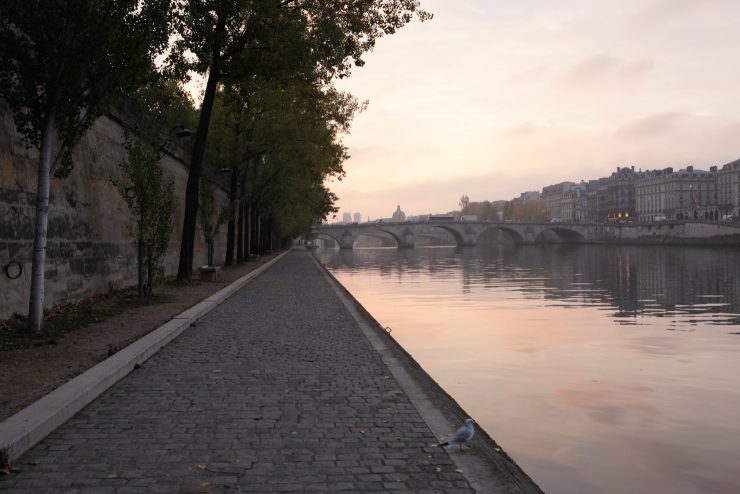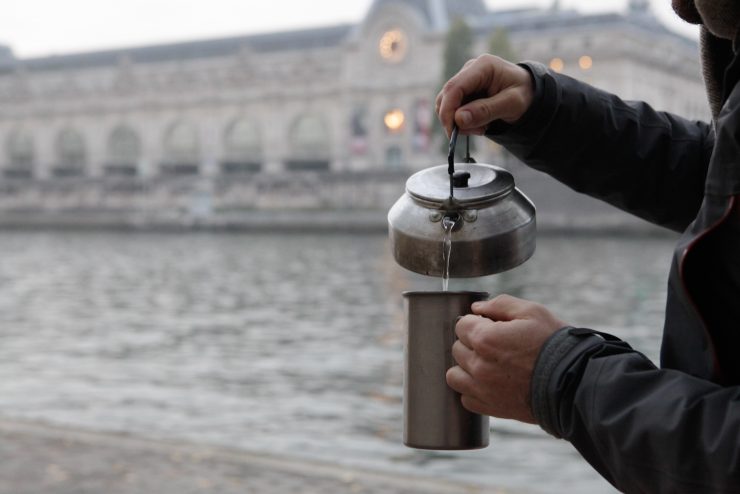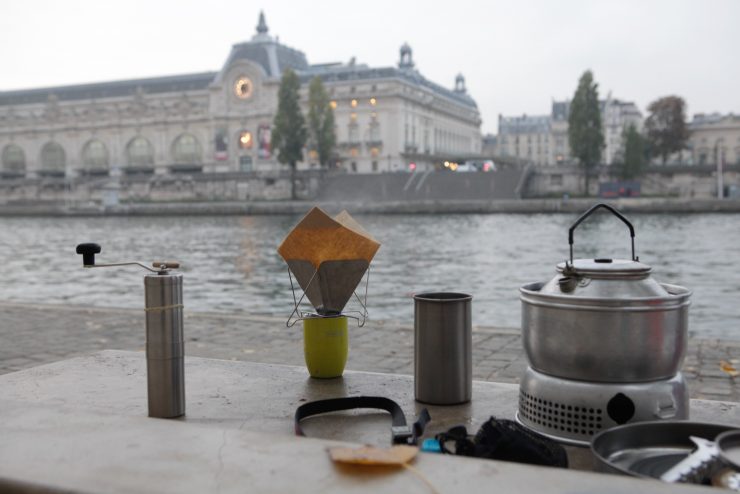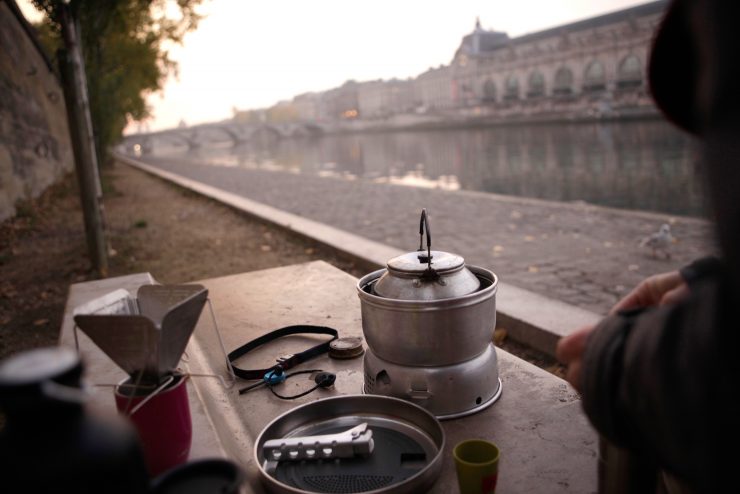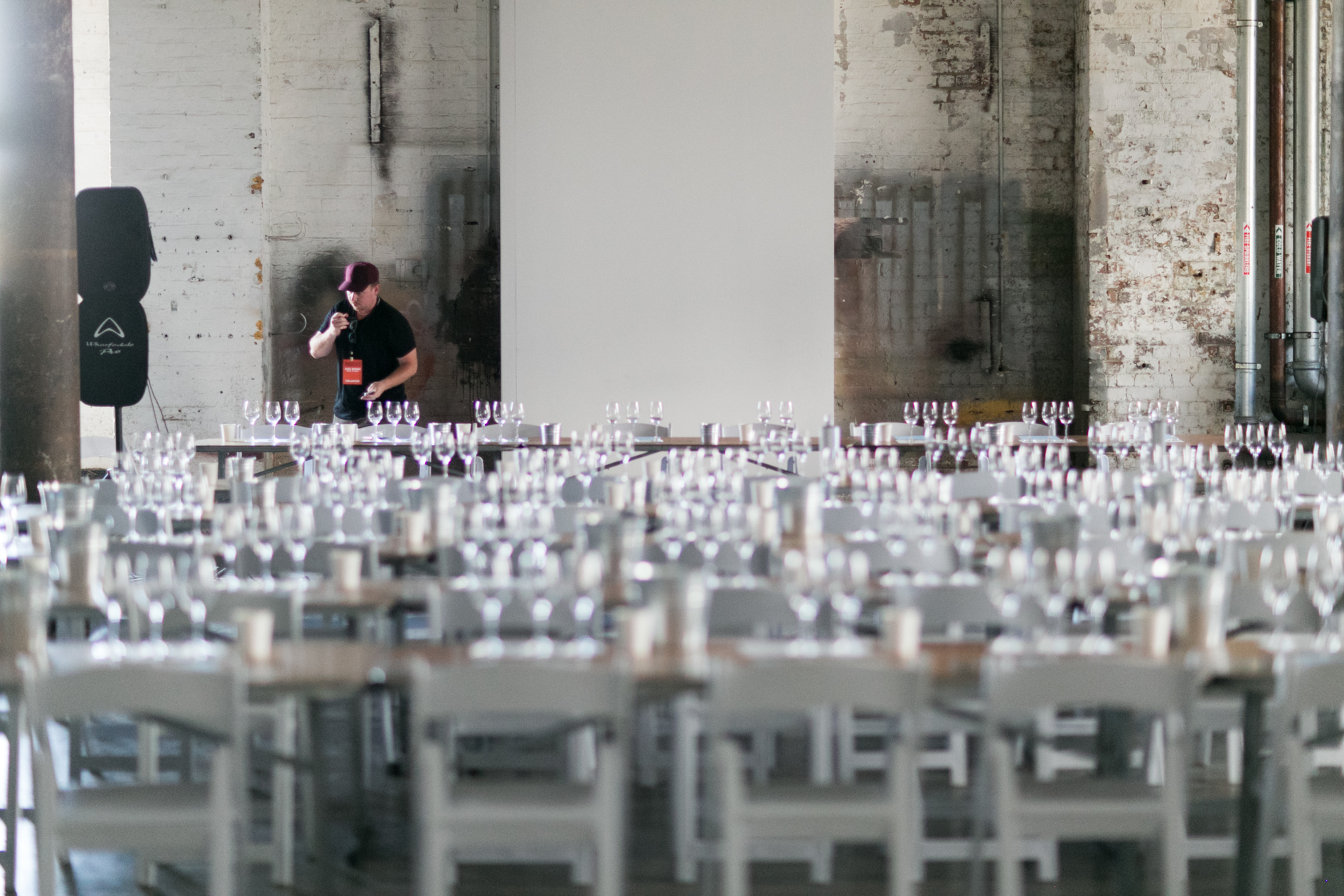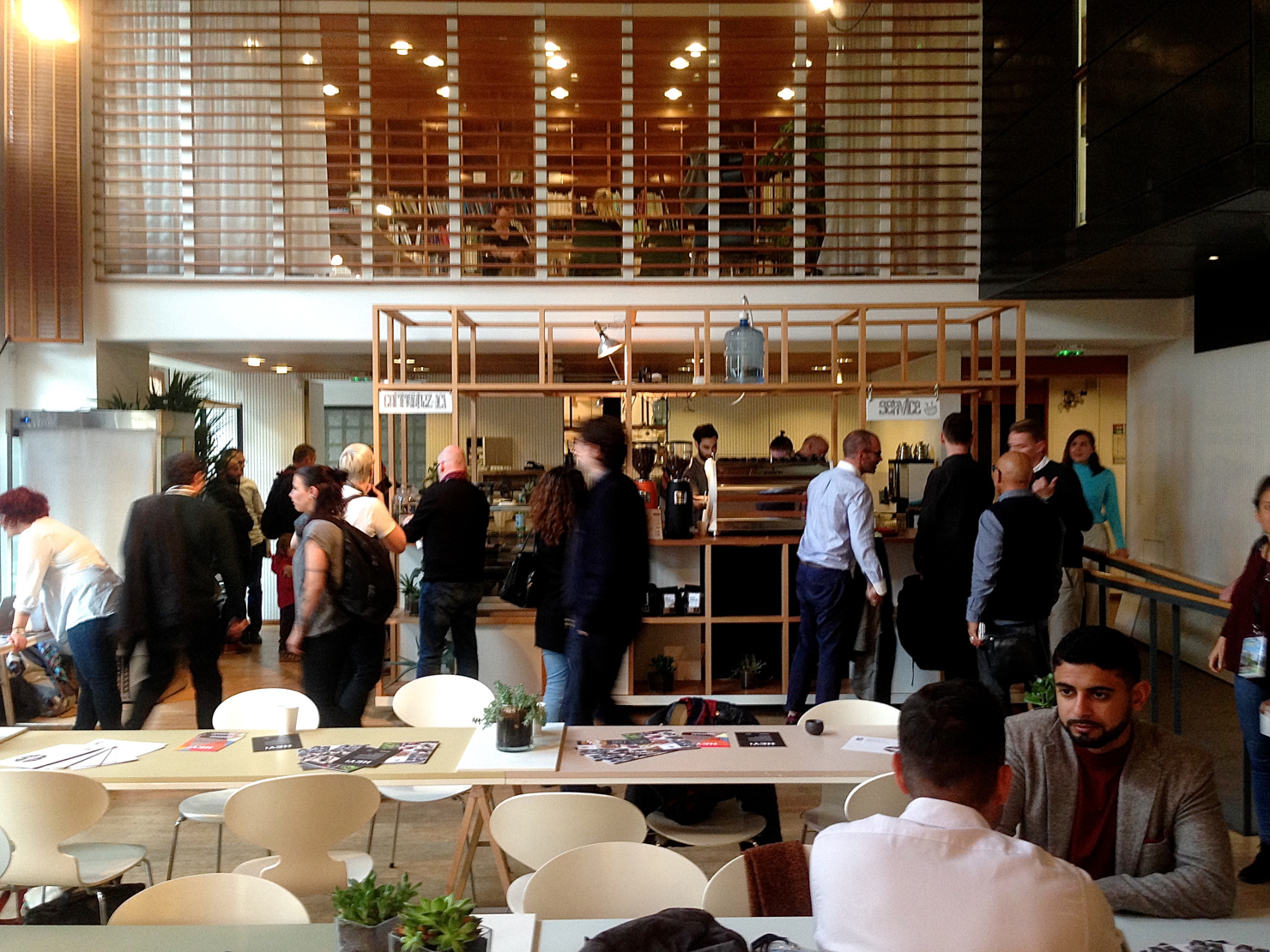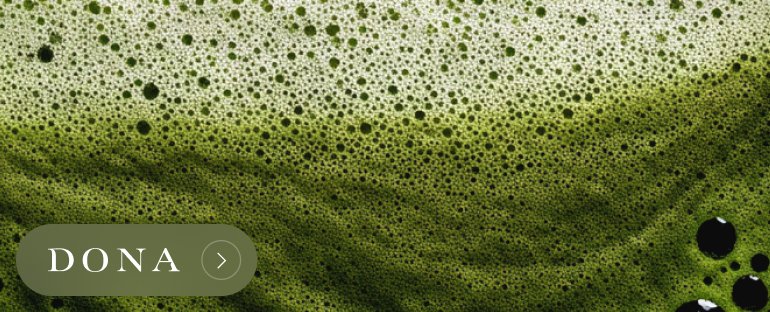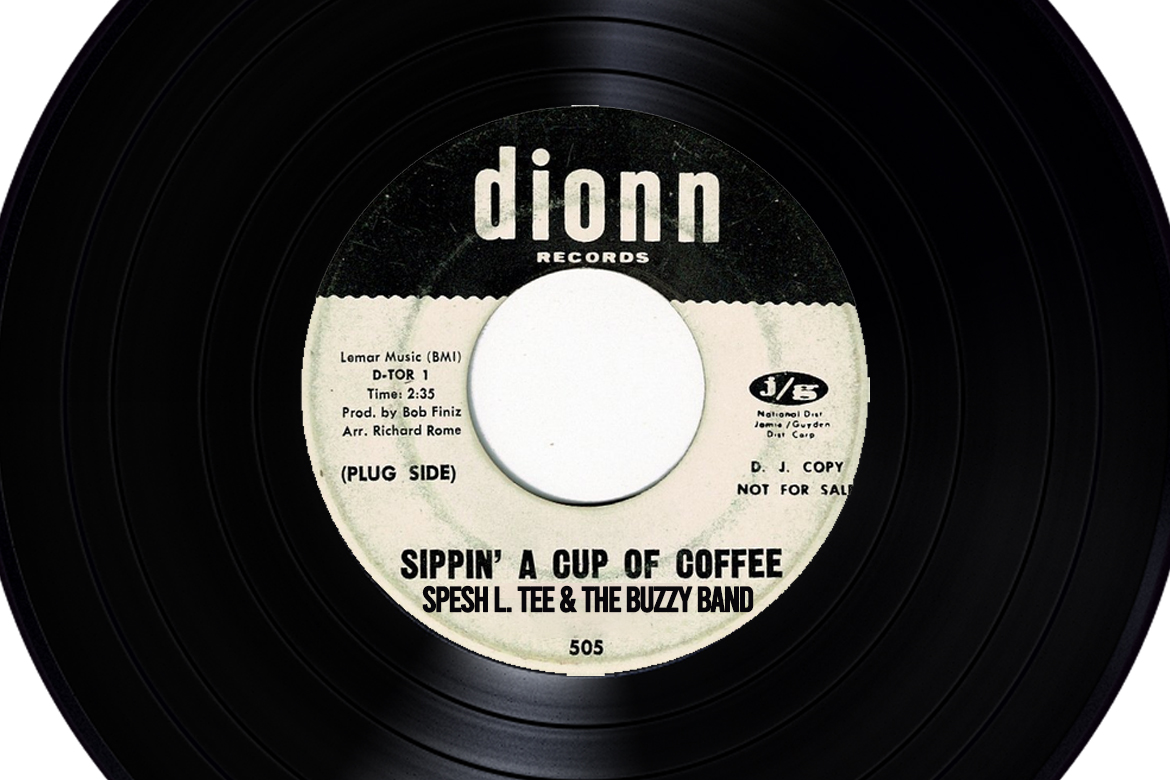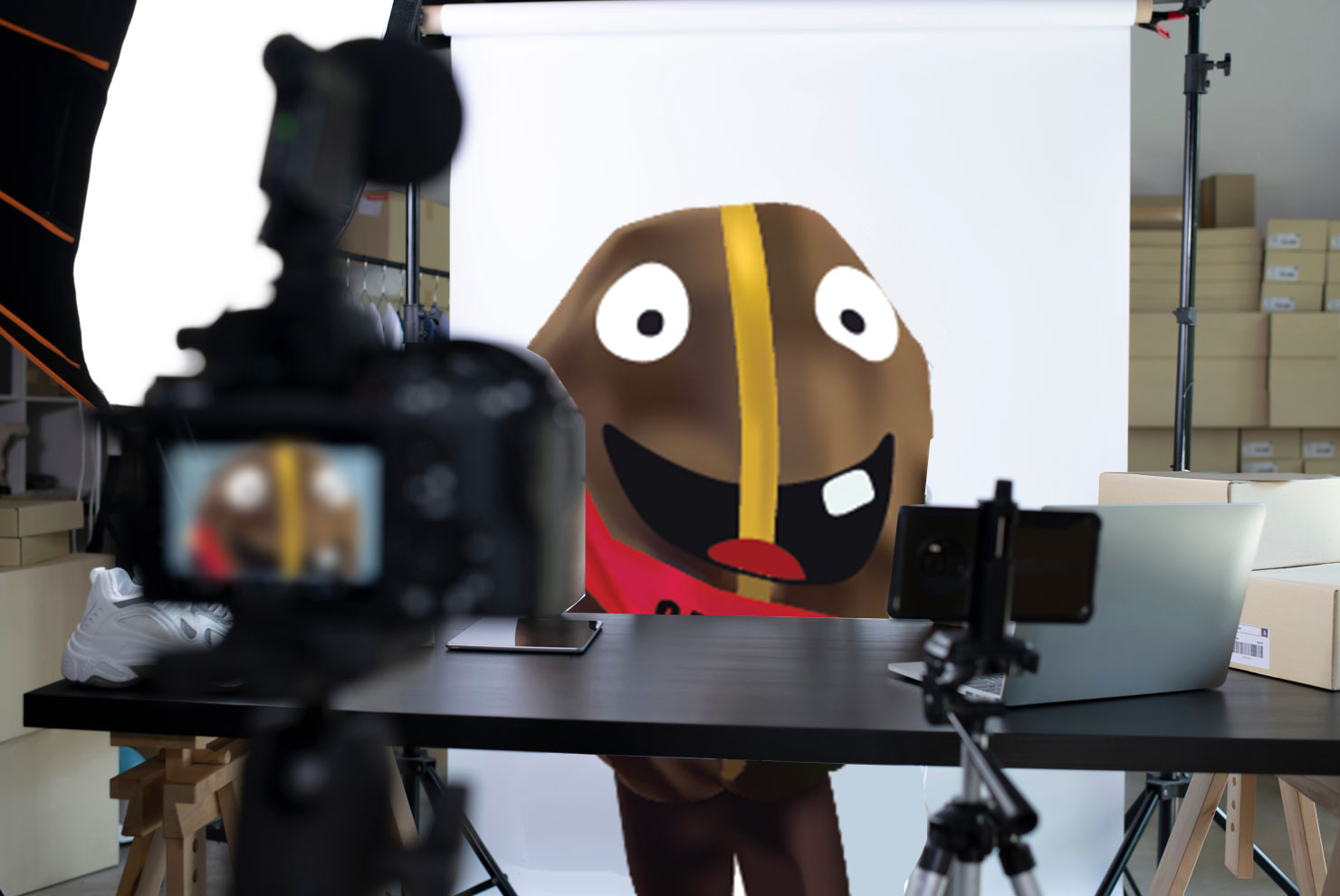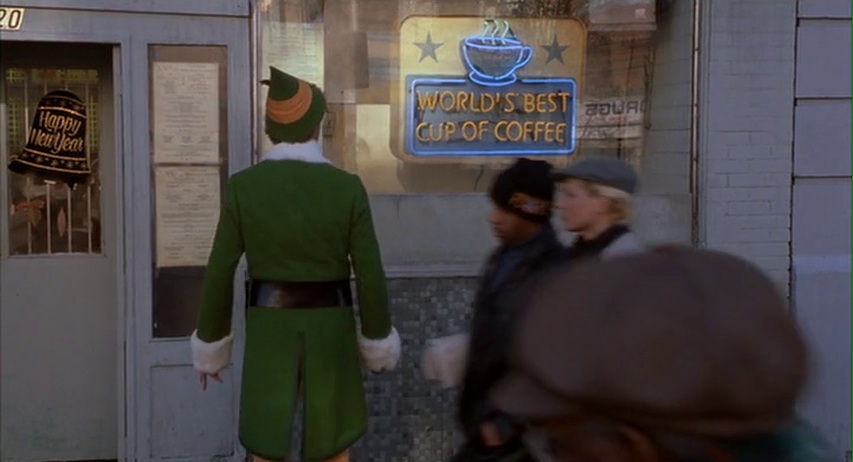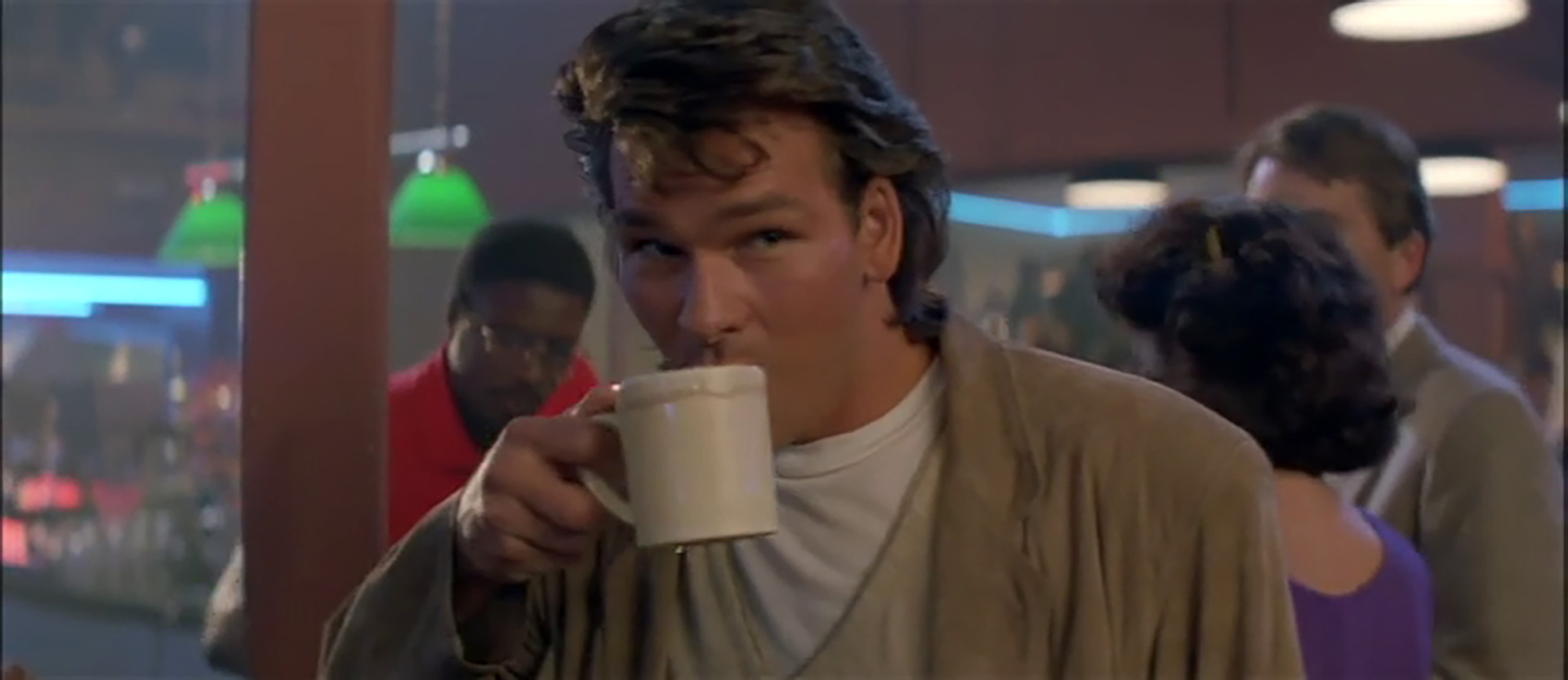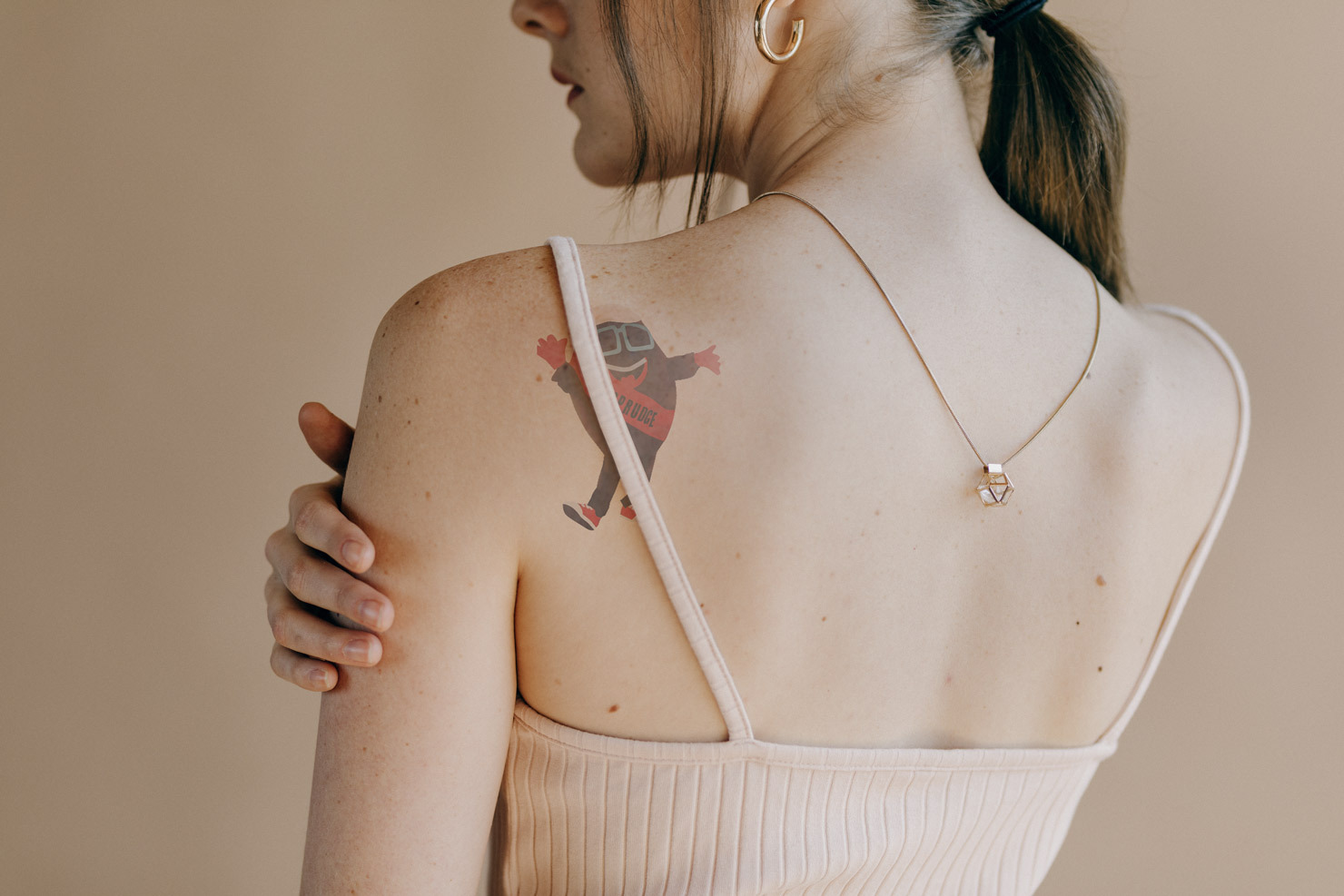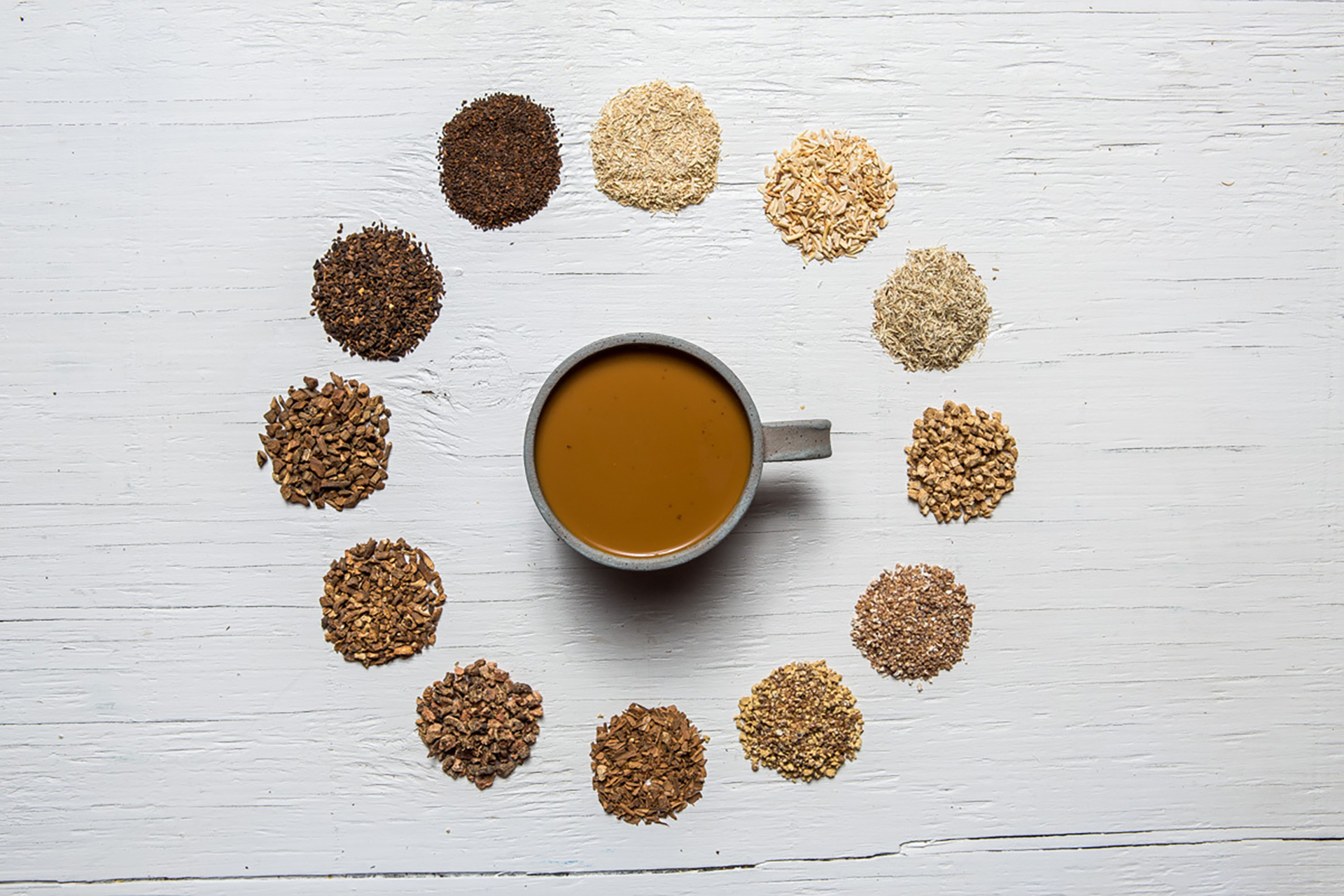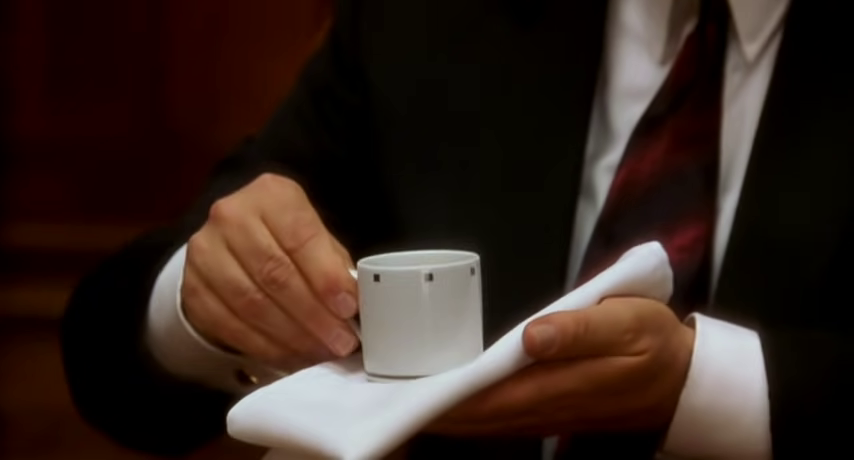In January, I wrote a piece for Sprudge in the wake of the Charlie Hebdo attack. I remember writing it, sitting at my dining room table, which doubled as my desk, feeling almost paralyzed. Not from fear, but from sadness; I penned an essay as a way to deal with that sadness.
Here we are, 10 months later, reeling from another Parisian attack, and there is once again, a lot of sadness. But this time it’s different. This time I am like so many others: I am watching from afar.
I left Paris just a couple of weeks ago, closing the door to the Parisian chapter and opening the door to a new one. But while Paris is far away physically, it’s still very close emotionally, particularly in the wake of last week’s attacks, Europe’s worst attacks in over a decade. Yes, there are attacks around the world on a regular basis, but this one hit me in a very different way: the city had been my home. I know its streets, its eccentricities. It has shown me joyful moments and arduous ones. I have eaten numerous times at Le Petit Cambodge (one of the restaurants which was attacked). I had, in fact, biked through that neighborhood the day before leaving Paris, just like I have done so many times before. So even while being far away, these attacks felt close.
After leaving Paris, I had written an article intended for Sprudge, a summary of my experience of the growing coffee scene over the last two years. Because the last two years have been an exciting time for coffee in Paris; we have seen a community of specialty coffee enthusiasts built from the ground up. The article was written and edited—I even shot a series of photos for it on the banks of the Seine river before leaving town—and it had been slated for publication on Friday, November 13. We pulled it, of course, and I wondered if there were other words that should replace it. Condolences? A public statement of grief? Or maybe just silence? Sprudge is after all a publication about specialty coffee, not about politics or world news. But then again, coffee is often a conduit for these things. It is a product that ties many of us together, regardless of what continent we are on. It can be something that provides solace in the face of chaos.
I wasn’t physically in Paris after these attacks, but I was last time, and I know how nice it felt to have a place to go to; a place to convene and reclaim normal life, a place to meet friends, a place to vocalize feelings and concerns. In that case, a coffee shop. I watched as my friends and acquaintances running coffee businesses announced on social media that they were opening their doors to welcome people in, that they were there not just for a cup of coffee, but also for whatever their regulars were in need of. In this moment of pain, they weren’t just coffee shops, they were community hubs where people could return to a sense of normalcy in the midst of confusion.
“Coffee shops are generally a part of people’s daily routine. The pause punctuates the day for people’s lives. In this way, we offer a sense of normalcy in an uncertain time. We are a friendly face, we are a hub for information exchange—a watering hole if you like. We connect people,” says Daniel Warburton of Honor Café, who, when the café opened back up after the weekend, aptly posted on Instagram: “There’s an eerie calmness today. Words aren’t enough. We’re here to look after you with warmth, coffee and hot quiche.”
Besides being a space to congregate, other places helped in different ways. Ten Belles is located just blocks from some of the shootings; on the day they reopened, proceeds went to the Red Cross.
I asked Warburton more about his experience opening up shop after the shootings, and he told me, “I guess the point about these sorts of tragedies is that people want to see a familiar face and know that in face of such uncertainty you are there for them. As regular customers came by…we could touch base and share our experiences over the past few days. It’s important to go through that as a group of people, and to be a part of that for me is significant.”
Many places stayed closed the day after the attacks, but not all. The Beans on Fire, located in the 11th arrondissement, near several of the attacks, was one of them. In fact, two team members who had stayed at the space late that evening took refuge in the green coffee storage room until 3am the night of the attacks, waiting until it was safe enough to make their way home. “We decided to open on Saturday after the tragic Paris events because our job is to make and share coffee,” says Andrés Hoyos-Gomez of The Beans on Fire. “The job of the police and the army is to let us, to help us do our job, and to let and help the people who want it to get a coffee and get together around a coffee, and for that matter to let and help people work, play, and live.”
“Terrorists want us to live in fear, isolated from each other, trapped in our homes, in our minds,” says Hoyos-Gomez. “We must not.”
There is no hierarchy of death and terror. One attack, wherever it may be in the world, is one attack too many, and I am painfully aware that there are people in the world who deal with this fear, and tragedy, on a regular basis. But often, the most touching stories out of these places, be they closer to home, or on the opposite side of the globe, are the stories of people continuing on with their everyday lives. People refusing to stand down to fear.
I traveled to Kabul a few years ago, a place your family and friends don’t really want you to go. What struck me the most wasn’t the security checks, or the armed police, or the fact that when you went to a restaurant or café in Kabul there would often be a “no weapons” sign at the door. It was that everyday life that flourished. Students went to university, people rode their bikes, families went to the park with a picnic on weekends. The potential for tragedy hung in the air—probably more so for a foreigner who was experiencing the city, and a conflict zone, for the first time—but it didn’t dominate the atmosphere. My most touching memory of that trip was being invited to sit down and drink tea with a family. In Afghanistan, tea is the social drink of choice. It’s served at official meetings and at homes, a drink that binds a people together. Much like coffee is for many of us.
As Hoyos-Gomez says, “Coffee is the new fire. We gather around coffee as our ancestors gathered around fire: for warmth, for shelter, for togetherness.”
I keep thinking back to one of my last coffee experiences in Paris. It was a dark autumn morning, and I was biking with my partner, Luc, down to the Seine. We had committed to brewing at least one coffee outdoors before we left. We found a stone bench and set up the trusty Trangia on the banks of the Seine. The sun had already started rising and there was the rosy morning hue in the sky that Paris is known for. The magic morning hour. On the other side of the Seine was the Musée d’Orsay, a stunning building and impressive backdrop to an outdoor brew. It was picturesque to say the least.
This moment continues to appear in my head, because it’s the Paris that I want to remember, much like anyone who has experienced a tragedy wants to remember their home country or their home city: with love and wonder. Eventually, no matter what the tragedy, be it a death in the family, a terrorist attack or a natural catastrophe, we continue on. We take one step forward, and then another. “Each person decides how long grief takes them out from home and back in action, and again we fully respect everyone’s decision, but surely we can’t collectively be imprisoned indefinitely, physically and also mentally, emotionally. Life has to regain ground,” says Hoyos-Gomez.
As we regain that ground, it’s important to surround ourselves with our community. To remind ourselves that we are part of a collective whole. We must have faith in humanity, even when that faith feels broken. We must trust each other, stare the problem in the face and find hope. Because it is hope, not fear, that drives us forward. And if we can share that hope together, all the better. “I was already certain there is no good coffee without sharing. I also now believe more than ever that good sharing is very meaningful and just nicer with coffee,” says Hoyos-Gomez.
Don’t want to give in to the fear? Want to create a better world? Want to regain your faith in humanity? Turn the television off. Close your computer. Don’t look at your Facebook feed on your phone. Get together with other human beings. Sit around the proverbial fire. It is through our personal interactions that we create the communities that we want to be a part of. The communities that remain resilient, even in the face of fear and tragedy. The communities that remain beautiful. The ones that we want to remember.
Anna Brones is a Sprudge.com staff writer. Read more Anna Brones on Sprudge.




